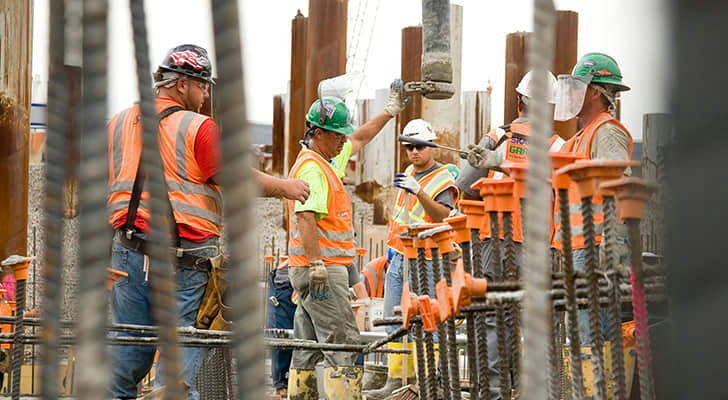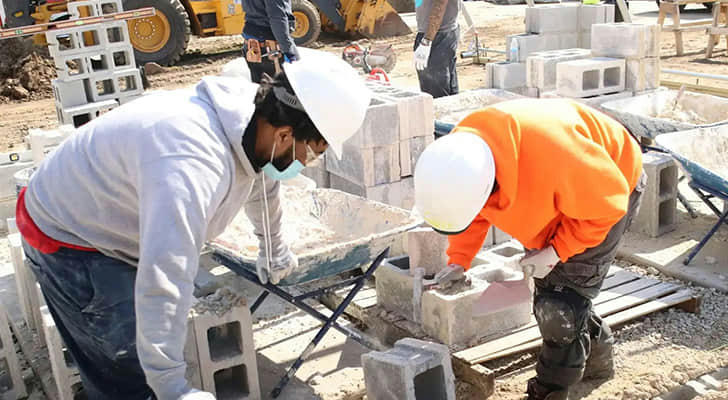A Beginner's Guide to Starting a Career in Construction

What Do Construction Workers Do?
Construction workers are essential parts of the teams that build and repair everything from buildings to roads and bridges.
Their work covers a wide range of tasks, from basic to complex and sometimes even risky. Initially, they prepare the construction site by clearing debris, filling holes, and digging trenches.
Once the project kicks off, they set up and take down temporary structures like scaffolding and barricades. They also handle various machinery and tools such as concrete mixers, jackhammers, saws, and drills.
What Skills Are Needed for Construction Work?
Contrary to the belief that construction work doesn't require much skill, it actually demands a variety of abilities. Physical strength and endurance are critical because the job involves heavy lifting, climbing, and operating tools for long periods. Workers need to have good hand-eye coordination, manual dexterity, and excellent vision to perform their tasks effectively.

Besides physical attributes, a solid understanding of building and mechanical principles, as well as basic math and reading skills, is necessary to interpret blueprints and other work documents. Although formal education isn't always required for general labor positions, having a high school diploma or GED can be beneficial.
What Is Included in a Construction Worker's Job Description?
Construction workers team up to build and repair different structures. This might involve tasks like pouring and forming concrete, which can be repetitive. However, the nature of the work can change as the project progresses, offering variety in daily tasks.
Different Types of Construction Worker Positions

According to the Census and Statistics Department, over 350,000 people worked in construction in the first quarter of 2024. This makes up about 9.5% of all workers. The industry includes both general laborers and skilled tradespeople like carpenters.
In construction, there's a hierarchy: at the top are construction managers, supervisors, and coordinators, while laborers and assistants are at the entry level. Contractors also hire specialized subcontractors, such as electricians, drywall installers, roofers, and machine operators.
Exploring Careers in Construction
If you prefer working outdoors and enjoy physical tasks, a career in construction might be a great fit. There are numerous entry-level positions where you can gain experience and discover what you like best.
Entry-Level Construction Jobs
Starting out in construction gives you a chance to learn various skills and work on different projects. Here are some entry-level roles you might find:
•General Laborers: These workers handle a wide range of tasks, from using hand tools and operating light machinery to unloading trucks. The job is varied, providing lots of opportunities to learn new skills.
•Cleanup Crew Members: These workers keep the job site clean and safe. They clear debris, check tools and equipment, and set up signs. This role is crucial for maintaining a safe working environment.
•Flaggers: Flaggers manage traffic around construction sites. They set up signs and barricades, and direct vehicles and machinery safely through the area. With additional training, flaggers can move into higher-paying positions like traffic control tech.
•Site Maintenance Workers: They perform routine checks on the site to prevent accidents and costly mistakes. Their job is to ensure everything is in good working order and to report any issues.
Building a Career in Construction

A career in construction can be rewarding and offers good prospects. The job market in this field is growing, with many opportunities expected in the coming years.
Advanced Roles in Construction
While many entry-level jobs require minimal experience, more specialized roles do need specific skills and training. Here are a few examples:
Carpenters: Carpenters work on building and repairing frameworks, structures, and furniture. They might also create or install stairways and rafters according to blueprints.
Electricians: Electricians handle the installation, repair, and maintenance of electrical systems. This role often involves learning about new technologies and can be quite rewarding.
Plumbers: Plumbers install and repair pipes and systems related to water, heating, and cooling. They might work hands-on or be involved in designing and drafting plumbing systems.
Skilled Laborers: These workers perform various tasks to support other roles. This position allows you to gain experience across different areas of construction.
Essential Skills for Construction Workers

While entry-level jobs don't typically require formal education, some basic skills are crucial. Construction work demands physical strength, stamina, good coordination, and attention to detail. Effective communication and time management are also important, as is the commitment to safety. Wearing the appropriate protective gear is essential to avoid injuries.
How to Start a Career in Construction
Starting a career in construction offers many possibilities. Professional organizations like Associated Builders & Contractors (ABC), Associated General Contractors of America (AGC), and American Institute of Constructors (AIC) can provide valuable resources and networking opportunities.
Getting Started Through Apprenticeships
An apprenticeship can be an excellent way to enter the construction field. It combines classroom learning with hands-on experience, typically lasting three to five years, depending on the trade.
Exploring Temporary Jobs
Temporary jobs are another great way to start. They allow you to try different roles, gain practical experience, and work with seasoned professionals who can mentor you.
Finding Construction Jobs
If you're looking to get into construction, staffing companies can be a great resource. They can connect you with a variety of roles that may require additional skills or experience, such as:
•Carpenters
•Electricians
•Heavy Equipment Operators
•Plumbers
•Skilled Laborers
•Solar Installers
In summary, a career in construction offers a range of opportunities, from entry-level positions to specialized roles. With the right skills and training, you can build a successful career in this dynamic field.
